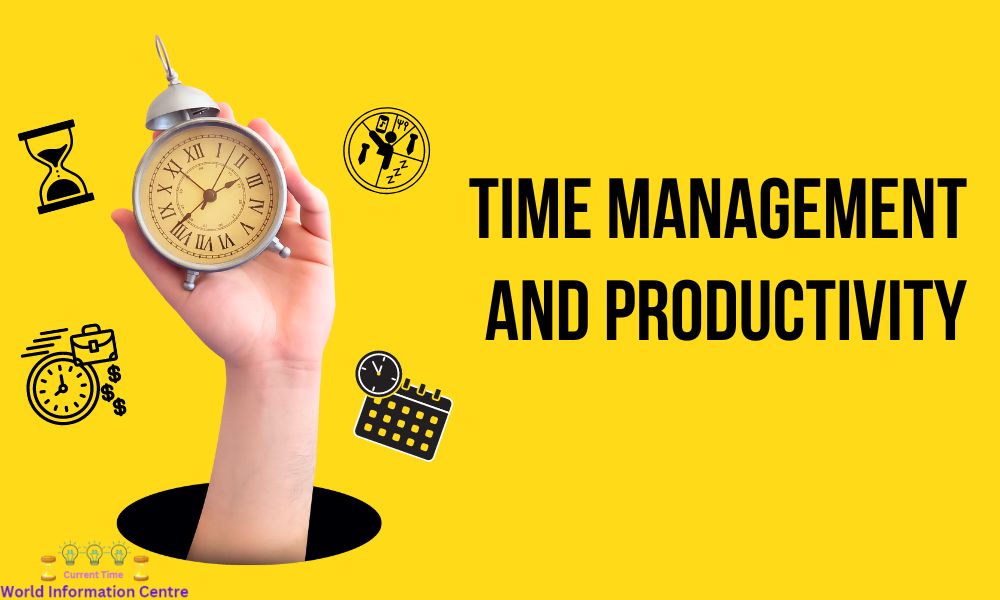Tips for Effective Time Management and Productivity
Discover valuable tips for effective time management and productivity. This comprehensive article provides practical strategies to help you make the most of your time and boost productivity in both personal and professional life.
Introduction
Table of Contents
Time is a finite resource, and how we manage it directly impacts our productivity and overall well-being. In today’s fast-paced world, effective time management is essential to handle multiple responsibilities and achieve our goals efficiently. In this article, we will explore valuable tips for effective time management and productivity that can help you optimize your daily routines and make the most of each day.
Understanding Time Management
1. Defining Time Management
Time management refers to the process of organizing and planning how to allocate your time efficiently to accomplish tasks and achieve specific goals.
2. Benefits of Effective Time Management
Effective time management leads to increased productivity, reduced stress, better work-life balance, and a sense of accomplishment.
Practical Tips for Effective Time Management
3. Set Clear Goals and Priorities
Establish clear short-term and long-term goals, and prioritize them based on importance and urgency. Focus on tasks that align with your objectives.
4. Create a To-Do List
Maintain a daily to-do list to keep track of tasks and deadlines. Organize the list based on priorities and cross off completed tasks for a sense of achievement.
5. Utilize Time-Blocking
Time-block your schedule by allocating specific time slots for different tasks. This helps maintain focus and prevents multitasking.
6. Use Time Management Tools
Explore digital tools and apps that can assist with time management, such as calendar apps, task organizers, and productivity trackers.
7. Avoid Procrastination
Identify triggers for procrastination and develop strategies to overcome them. Break tasks into smaller, manageable steps to make them less overwhelming.
8. Set Realistic Deadlines
Set realistic deadlines for tasks to avoid unnecessary stress. Consider potential obstacles and allocate sufficient time for each task.

Time Management and Productivity
9. Limit Distractions
Identify and minimize distractions in your environment, such as social media, unnecessary notifications, or loud noises.
10. Practice the Two-Minute Rule
If a task takes less than two minutes to complete, do it immediately instead of postponing it.
11. Batch Similar Tasks Together
Group similar tasks together and complete them in one session to improve efficiency and focus.
12. Take Regular Breaks
Incorporate short breaks into your schedule to recharge and maintain productivity. Use techniques like the Pomodoro method (working in intervals) to stay focused.
Time Management for Personal Life
13. Set Personal Boundaries
Learn to say no to non-essential commitments to create time for activities that truly matter to you.
14. Delegate Tasks
Delegate household or personal tasks to family members or hire help to reduce your workload and free up time.
15. Limit Screen Time
Set boundaries for screen time, especially on social media and entertainment platforms, to reclaim valuable hours.
16. Prioritize Self-Care
Schedule time for self-care activities, such as exercise, meditation, or hobbies, to recharge and maintain overall well-being.
Time Management at Work
17. Start with the Most Important Tasks
Begin your workday by tackling the most important and challenging tasks when your energy and focus are at their peak.
18. Avoid Multitasking
Focus on one task at a time to maintain efficiency and prevent errors.
19. Use Email and Meetings Wisely
Limit time spent on emails and attend only essential meetings to avoid wasting productive hours.
20. Practice Continuous Learning
Invest in continuous learning and skill development to enhance productivity and stay updated in your field.
Time Management for Long-Term Goals
21. Break Down Long-Term Goals
Divide long-term goals into smaller milestones and set deadlines for each stage of the journey.
22. Review and Adjust
Regularly review your progress towards long-term goals and make adjustments to stay on track.
23. Celebrate Achievements
Acknowledge and celebrate your achievements along the way to stay motivated and committed to your goals.
Overcoming Time Management Challenges
24. Overload and Burnout
Recognize signs of overload and burnout and take breaks when needed. Remember that rest is essential for sustained productivity.
25. Flexibility and Adaptability
Stay flexible and adaptable in your approach to time management. Life may throw unexpected challenges, and being open to change can help you stay on course.
FAQs
- How can time management reduce stress?
- Effective time management allows you to plan and prioritize tasks, reducing the feeling of being overwhelmed and stressed.
- What are the benefits of using time management tools?
- Time management tools can help you stay organized, track progress, and improve overall productivity.
- How can I prioritize my tasks effectively?
- Prioritize tasks based on importance and urgency. Consider the impact of each task on your goals and objectives.
- Is it okay to take breaks during work hours?
- Yes, taking short breaks during work hours can enhance focus and productivity. Use breaks to recharge and avoid burnout.
- Can time management improve work-life balance?
- Yes, effective time management can help you allocate time for both work and personal activities, leading to a better work-life balance.
Conclusion
Effective time management is a valuable skill that can significantly impact productivity and overall well-being. By setting clear goals, creating schedules, and practicing strategies to overcome challenges, you can optimize your time and accomplish tasks more efficiently. Embrace these tips for effective time management and experience the transformative effects they bring to both your personal and professional life. Remember, time is a precious resource—use it wisely to achieve your aspirations and create a fulfilling and balanced life.
Finding Joy in the Simple Things: Embracing Slow Living

